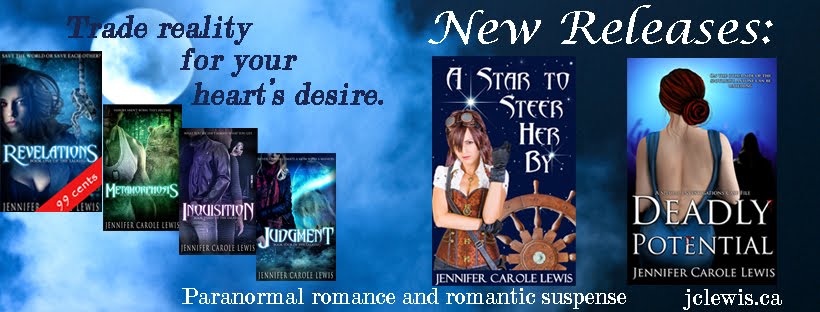Over the last few weeks, I've been doing a lot of thinking about dark moments. In a story (book or film), it's the moment where it looks like failure is inevitable, usually right before the big resolution. The hero or heroine's quest looks impossible, their attempt to create a new life is in shambles and they can't return to their old life, and the couple will never be able to unite. I'll leave it to you to decide which real world event might have got my thoughts trending in that direction.
Creating a good dark moment is a real challenge for a writer. It can't seem forced or artificial. The external and internal conflicts have to both come together to block the goals in a way that feels organic to the reader, but still leaves them clutching the book and frantically turning pages to find out how it ends.
The seeds for a dark moment have to planted in the first few chapters. The character's fears, insecurities, desires and goals all come into play. These are what determine the main conflict throughout the story. To use an example from film, in the movie America's Sweethearts, at the beginning, Julia Robert's character, Kiki, is consumed by her work as her sister's assistant and harbours a schoolgirl crush on her sister's ex-husband, Eddie, played by John Cusack. She's stuck in believing she's no one special, doomed to always be the bridesmaid.
Eddie is still in love with his ex-wife, Gwen, played by Catherine Zeta-Jones. He wants to cling to the stories they told in their movies, of a perfect pair of soulmates. He's in a crisis of confidence as a man and an actor, not knowing where to go now that his celluloid-inspired world has vanished.
In the film's dark moment, Gwen tells Eddie that she wants him back, with Kiki in the room. Kiki is heartbroken, assuming Eddie will chose Gwen over her. She will go back to being ignored and ordered around. Eddie doesn't want to tell Gwen the truth and realizes his lies have cost him Kiki's trust. Externally, the film executives are pushing Gwen and Eddie to reunite in order to generate publicity for their work.
All of those critical choices are set up in the beginning. We see the executives pushing Gwen and Eddie's personal life as a distraction from their own problems from the first few minutes. We see Eddie's obsession with Gwen and Kiki's lack of confidence. So it is believable that Eddie might choose Gwen over Kiki and that Kiki won't fight for their relationship.
Without a good dark moment, the happily ever after feels meaningless. Even though every genre audience knows that the hero and heroine will succeed and end up together, if the tension isn't built realistically then the payoff isn't satisfying. True love has to triumph over big obstacles because novels and movies are about bigger than life situations.
So to make sure the dark moment reaches its full potential, a writer should ask the following questions:
- Are both the internal conflict (the character's own prejudices, fears and doubts) and the external conflict (the character's goals or external danger/challenges) involved in coming together? If the conflicts don't peak simultaneously, the dark moment can become too bleak (if it stretches too long in the plot) or lack power (if it feels like half-measures).
- Have the conflicts (and the characters' reactions to them) been set up realistically throughout the plot? Does the audience see plenty of opportunities for the characters to display both growth and setbacks? The dark moment must be tied in to the ongoing tension in order to have an impact.
- Is the dark moment consistent with being a test between the character's greatest fear and their greatest desire? Choosing between material or professional success and love is a classic trope and it works precisely because it's a big emotional draw which works realistically with either choice.
- Is the character balanced between their new life and their old life? Both sides should be able to exert equal pressure and an equal lure on the character. Throwing aside an old life for something new and untested is frightening. After the dark moment, there should be no doubt that the character is willing to face that fear to have something new. That's why the rest of the story proceeds quickly after the dark moment. The character has overcome the obstacles, leaving nothing to block their desires or goals.
These questions can help a writer to avoid the common challenges with the dark moment (it didn't feel real, it was too easy or it came out of left field). And with the dark moment properly set up, the step into the light will feel all the more satisfying to both the author and the reader.

No comments:
Post a Comment